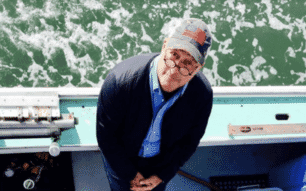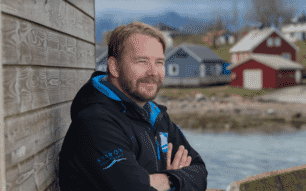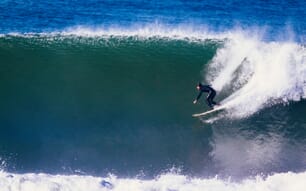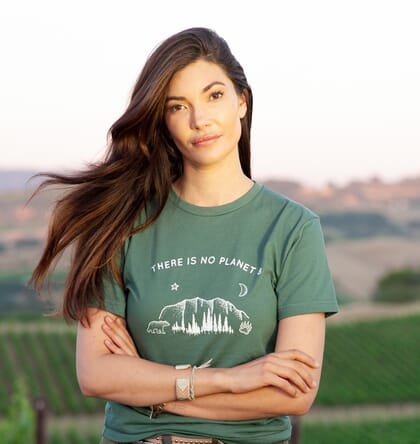
A speaker at the World Economic Forum in Davos and at the UN, she is committed to bringing together the brightest minds to drive mass awareness, and scale game-changing solutions to urgently address the climate crisis. In 2018 she founded Grounded.org, a philanthropic initiative that brings scientists, policymakers, investors, executives and activists together to develop and deploy solutions that prevent global temperatures rising by more than 1.5˚C, to ensure a habitable planet.
Tell us a little bit about how you got to where you are today.
There are people who are far greater experts in the field of climate solutions. When I founded Grounded, my mission and vision was to elevate their work, their voices, and their solutions in a way that would get them in front of funders, policymakers and the masses. This way, people are more aware of solutions to reverse the climate crisis.
I come from a family of vintners, and I've always had a connection to the land. As vintners, we feel like we're stewards of the land. We believe in reciprocity. When it comes to the climate crisis, the idea of reciprocity – especially amongst indigenous communities – is knowledge, wisdom, and leadership values. They are the unsung heroes because they're stewards of biodiversity, caretakers of the natural world and earth. Scientists are saying that in order [for the rise in global temperature] to stay below 1.5 °C in the next decade, we have to protect 50 percent of the planet. We need to marry science-based targets with indigenous wisdom.
Which body of water is most special to you and why?
I actually came up with the idea for Grounded on Tunnels Beach on Kauai [in Hawaii]. My mother and father got married on the island of Kauai. My sister got married on Tunnels Beach. It's really a second home to me. I've watched the coral throughout the last 30 years start to die off. One thing that led me to be more optimistic about recovery was to see how this area recovered after a major flood nearly two years ago. With less foot traffic, the monk seals came back, the turtles started to come back, and the fish population started to boom. I actually saw some of the coral reefs start to regenerate.
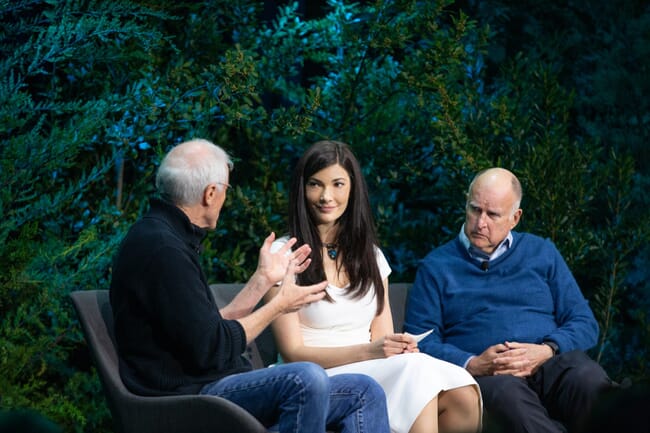
What are the most crucial issues facing the oceans at the moment?
Oceans sequester about two billion tonnes of CO2 annually. Our oceans are acidifying quite rapidly. This is a huge issue. The result is that oceans are pretty much done with sequestering carbon. Warming makes our oceans less efficient at sequestering carbon because the phytoplankton are dying off and our kelp forests are dying off. All of our ocean allies that are great with photosynthesis and storing that carbon deep down in the ocean are dying. The entire ecosystem is under threat.
Do you think that people are interested in the story of where their seafood comes from?
We have to recognise a product coming from a healthier ocean – farmed or wild – will be healthier for us. We have to always ask, is this seafood contributing to healthier oceans and a healthier climate, or is it detrimental?
What are the relative merits of wild and farmed seafood?
I still tend to eat more wild than farmed [seafood] for the health benefits. But the threat of micro-plastics is more prevalent now. Plus, with the additional issue of overfishing, I think it is important to transition to farmed seafood. We have to make sure that it is consciously farmed fish. Further, there is an opportunity to turn invasive species into a delicacy. Purple urchins are assaulting kelp beds, but are a good source of protein. I'm really interested in how we can harness invasive species in our oceans and create a new way of eating, instead of viewing them as a problem.
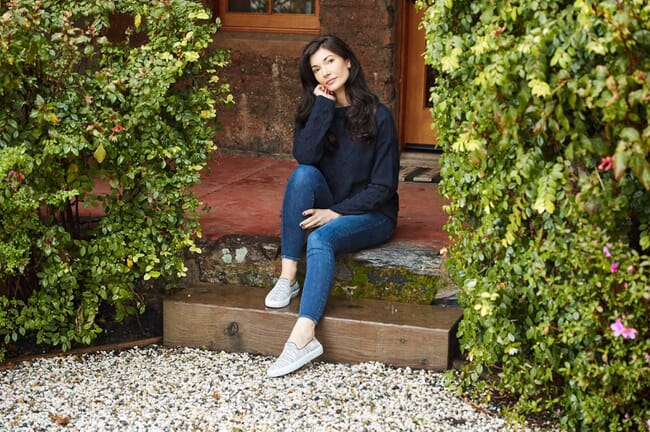
Did you have an "aha moment" that helped to persuade you of the value of aquaculture?
I am so inspired by ethical, sustainable aquaculture [practitioners], because they're using things like algae in the feed to give all of those omega-3s that we need without robbing the ocean of feeder fish. My “aha moment” was back on Tunnels Beach, seeing the coral reef decimated by ocean acidification. I remember swimming there as a little girl. The area was booming with beautiful tropical fish that are no longer there. This was my moment. I knew that it was paramount to regenerate and preserve ocean biodiversity. Aquaculture is one of many solutions that we need to have. If we want to continue to live on this planet, we have to change our behaviour and our thinking around these types of solutions.
How do you see the future of fish and seafood?
When it comes to the oceans, we have been in an all “take” mindset, with no “give”. If we are going to have enough fish and seafood for the future, everything that we do must have a “give back” component. We cannot take resources away and expect that it will lead to ocean abundance. We need to see biodiversity return. Aquaculture at the highest level, with diverse species – that includes ocean reforestation and management of wild resources at the highest level – will be the key to having a sustainable food source for the long term.


